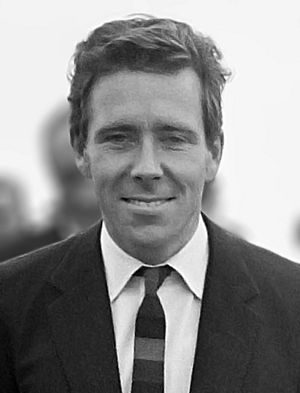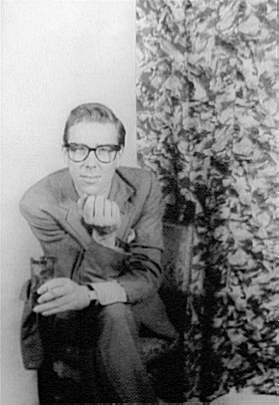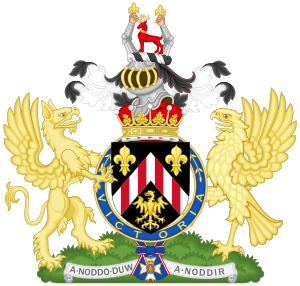Antony Armstrong-Jones, 1st Earl of Snowdon facts for kids
Quick facts for kids
The Earl of Snowdon
|
|
|---|---|

Armstrong-Jones in 1965
|
|
| Member of the House of Lords | |
| as a hereditary peer 6 October 1961 – 11 November 1999 |
|
| Preceded by | Peerage created |
| Succeeded by | Seat abolished |
| as a life peer 16 November 1999 – 31 March 2016 |
|
| Personal details | |
| Born |
Antony Charles Robert Armstrong-Jones
7 March 1930 Belgravia, London, England |
| Died | 13 January 2017 (aged 86) Kensington, London, England |
| Resting place | St Baglan's Church, Llanfaglan, Wales |
| Political party | Crossbencher |
| Spouses |
|
| Children |
|
| Parents |
|
| Alma mater | Jesus College, Cambridge |
| Occupation | Photographer |
Antony Charles Robert Armstrong-Jones, 1st Earl of Snowdon (7 March 1930 – 13 January 2017), was a famous British photographer and filmmaker. He was well-known for taking pictures of important people around the world. Many of his photos were published in popular magazines like Vogue and Vanity Fair. More than 100 of his photographs are kept in the National Portrait Gallery in London.
From 1960 to 1978, he was married to Princess Margaret, who was the sister of Queen Elizabeth II.
Contents
Early Life
Antony Armstrong-Jones was the only son of Ronald Armstrong-Jones, a Welsh lawyer, and Anne Messel. He was born in London. His family and close friends called him "Tony."
His grandfather, Robert Armstrong-Jones, was a Welsh psychiatrist. His grandmother, Margaret Armstrong-Jones, studied at Somerville College, Oxford. Antony's mother's family had German-Jewish roots. His uncle, Oliver Messel, was a stage designer.
Antony's parents divorced when he was almost five years old. His mother remarried later that same year. As a schoolboy, he caught polio while on holiday in Wales. He spent six months recovering in the Liverpool Royal Infirmary.
Education
Antony Armstrong-Jones went to two private boarding schools. He first attended Sandroyd School in Wiltshire from 1938 to 1943.
He then went to Eton College starting in 1943. He was good at boxing there. In 1947, he was a coxswain in Eton's traditional boat procession.
After Eton, he went to the University of Cambridge. He studied architecture at Jesus College but did not pass his second-year exams. He was the coxswain for the winning Cambridge boat in the 1950 Boat Race.
Photography Career

After university, Armstrong-Jones started working as a photographer. He focused on fashion, design, and theatre. A friend of his stepmother, the photographer Baron, was impressed by Antony's work. Baron offered him an apprenticeship.
Many of his first jobs were taking pictures for plays. His uncle, Oliver Messel, often recommended him. He also took many "society" portraits for Tatler magazine. Later, he became known for his royal photographs. These included official portraits of Queen Elizabeth II and the Duke of Edinburgh in 1957.
In the early 1960s, Snowdon became an artistic adviser for The Sunday Times Magazine. By the 1970s, he was one of Britain's most respected photographers. He took pictures of many famous people, including Marlene Dietrich, Laurence Olivier, David Bowie, Elizabeth Taylor, and Diana, Princess of Wales. Over 100 of his photos are part of the permanent collection at the National Portrait Gallery in London.
In 1968, he made his first documentary film called Don't Count the Candles. It was about aging and won seven awards, including two Emmys. He also made films like Love of a Kind (1969) and Born to Be Small (1971).
In 1981, a group photo by Snowdon of the British rock band Queen was used on their Greatest Hits album cover. A portrait of Freddie Mercury by Snowdon was also used on a solo album cover in 2000.
In 2000, the National Portrait Gallery held a special exhibition of his photographs. It was called Photographs by Snowdon: A Retrospective.
Snowdon was an Honorary Fellow of the Royal Photographic Society. He received their Hood Medal in 1978 and the Progress Medal in 1985.
Designs and Inventions
Snowdon also worked on designs and inventions. In 1963, he helped design the "Snowdon Aviary" at the London Zoo. It opened in 1964 and he was very proud of it. He also helped plan the special arrangements for the 1969 ceremony where his nephew, Prince Charles, became the Prince of Wales.
In 1971, he received a patent for a new type of electric wheelchair.
Helping Others
During his marriage to Princess Margaret, he supported many organizations. He was a patron of the National Youth Theatre and the Contemporary Art Society for Wales. He was also President of the British Theatre Museum.
In the 1960s, he was a council member for the Polio Research Fund. This fund later became Action Medical Research.
In 1980, Snowdon started an award program for students with disabilities. This program, run by the Snowdon Trust, gives money to help disabled students. He was also president for England of the International Year of Disabled Persons in 1981. From 1995 to 2003, he was the head of the Royal College of Art.
Family Life
Snowdon was married twice. His first marriage was to Princess Margaret from 1960 to 1978. His second marriage was to Lucy Mary Lindsay-Hogg from 1978 to 2000.
First Marriage

In February 1960, Antony Armstrong-Jones became engaged to Princess Margaret, Queen Elizabeth II's sister. They married on 6 May 1960 at Westminster Abbey. This was the first royal wedding ever shown on television.
The couple lived in apartments at Kensington Palace. On 6 October 1961, he was given the title Earl of Snowdon. They had two children: David, born in 1961, and Lady Sarah, born in 1964.
Their marriage lasted for eighteen years. They separated in 1976 and divorced in 1978.
Second Marriage
After his divorce from Princess Margaret, Lord Snowdon married Lucy Mary Lindsay-Hogg on 15 December 1978. They had one daughter, Lady Frances Armstrong-Jones, born in 1979. Lady Frances is a designer and works with the Snowdon Trust.
The couple separated in 2000.
Death
Lord Snowdon passed away peacefully at his home in Kensington on 13 January 2017. He was 86 years old.
His funeral was held on 20 January at St Baglan's Church in Llanfaglan, Wales. He was buried in the churchyard.
Titles and Honours
Peerage
After his wedding, Armstrong-Jones was made an Earl. He joined the House of Lords as the Earl of Snowdon on 28 February 1962. This was a common practice for people who married into the royal family. In 1963, Snowdon was appointed Constable of Caernarfon Castle. He helped organize the Investiture of the Prince of Wales there in 1969.
He gave his first speech in the House of Lords in April 1972. He spoke about the challenges faced by disabled people.
On 16 November 1999, Lord Snowdon was given a new title: Baron Armstrong-Jones. This was a life peerage. It allowed him to keep his seat in the House of Lords even after most hereditary peers (those who inherited their titles) were removed. He retired from the House of Lords on 31 March 2016.
Awards and Honours
- GCVO: Knight Grand Cross of the Royal Victorian Order, 7 July 1969
- He received the Progress Medal from the Royal Photographic Society in 1985.
- In 1989, he was given an honorary Doctor of Laws (LL.D.) from the University of Bath.
Arms
Children
- By Princess Margaret
| Name | Birth | Marriage | Children | |
|---|---|---|---|---|
| David Armstrong-Jones, 2nd Earl of Snowdon | 3 November 1961 | 8 October 1993 Separated 2020 |
Serena Stanhope | Charles Armstrong-Jones, Viscount Linley Lady Margarita Armstrong-Jones |
| Lady Sarah Armstrong-Jones | 1 May 1964 | 14 July 1994 | Daniel Chatto | Samuel Chatto Arthur Chatto |
- By Lucy Lindsay-Hogg
| Name | Birth | Marriage | Children | |
|---|---|---|---|---|
| Lady Frances Armstrong-Jones | 17 July 1979 | 2 December 2006 | Rodolphe von Hofmannsthal | Rex von Hofmannsthal Maud von Hofmannsthal Sybil von Hofmannsthal |
- By Melanie Cable-Alexander
| Name | Birth | Marriage | Children |
|---|---|---|---|
| Jasper Cable-Alexander | 30 April 1998 |
See Also
 In Spanish: Antony Armstrong-Jones para niños
In Spanish: Antony Armstrong-Jones para niños
- List of Cambridge University Boat Race crews
- List of Old Etonians born in the 20th century
- List of photographers
- List of University of Cambridge members
 | Selma Burke |
 | Pauline Powell Burns |
 | Frederick J. Brown |
 | Robert Blackburn |


